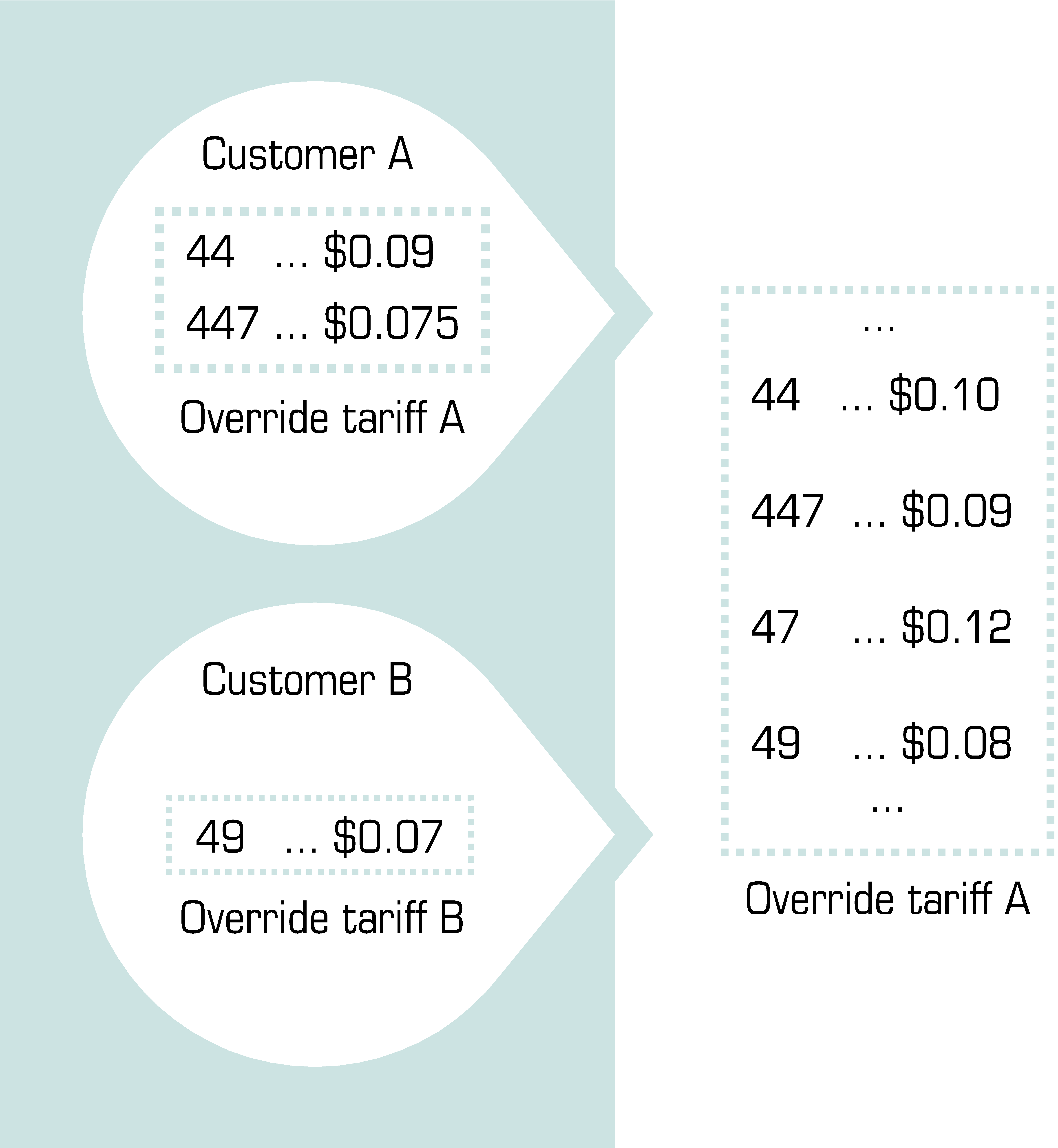Often it happens that a particular customer negotiates an individual rate to a specific country, e.g., a company sending a lot of calls to UK mobile requests a reduced rate of $0.09/minute compared to your standard rate of $0.10, defined in the Wholesale tariff. A simple way to implement such preferential pricing is to create a volume discount for a specific destination group and assign it to the customer. The only disadvantage is that this discount is applied to the current price of UK mobile in the Wholesale tariff. So if the price there changes, the actual price for the customer will change as well. Of course, creating a dedicated tariff (containing rates for all destinations) just for this customer is also possible, but this significantly increases maintenance overhead.
In a situation where a customer requires a specific, pre-negotiated rate per minute for certain destinations, use the Override Tariff feature in PortaBilling.
An override tariff is just like a normal tariff, but it contains only a handful of destinations, i.e., only those where the price must differ from the standard one. In our example above, it would be a tariff A, containing rates for 447, 448, and so on. The Override Tariff feature must be enabled in the configuration for a particular customer, and the administrator can then specify that the default tariff should be overridden by a specific tariff (in our case, the Wholesale tariff would be overridden by tariff A). Now, when calls arrive the billing engine will check for applicable rates in both the master tariff and the override tariff.
- If there is no match in the override tariff (i.e., there is no special price for this destination), then the rating is done, as usual, using the rate in the master tariff.
- If a matching rate is found in the override tariff, and the master tariff does not contain a matching rate or the rate in the override tariff is more specific (the destination prefix is longer) than the rate in the master tariff, the rate from the override tariff is used. In our example, this would be $0.09/min from tariff A.
- Finally, if there are matching rates in both the master and override tariffs, but the rate in the master tariff is more specific (the destination prefix length is longer), the override rate is ignored. This is done to prevent a “too generic” rate in the override tariff from erroneously granting a special price for some underlying and more expensive prefixes. In our situation, for instance, this means that if the master tariff contains a rate for 4489 (mobile premium numbers) at $0.30, this is not a part of the special price arrangement, and the rate for 448 in the override tariff will not be applied.
Override tariffs allow the PortaBilling administrator to easily create a custom rating for a specific customer (either adding new destinations not originally included in his tariff, or applying a special price for existing destinations). Also, it is possible to add multiple override definitions to the “override tariffs” table. This allows different override tariffs to be applied when a customer may be charged by several different master tariffs (e.g., the customer can alternate between the “Premium” and “Cheap” routing plans).




